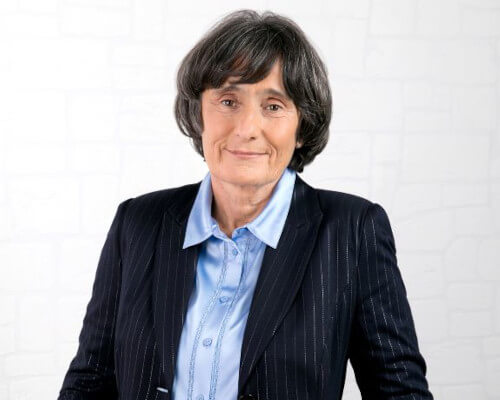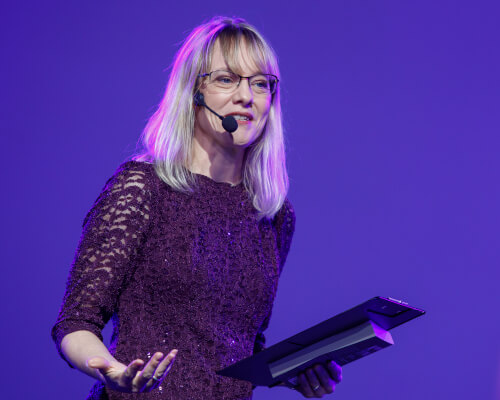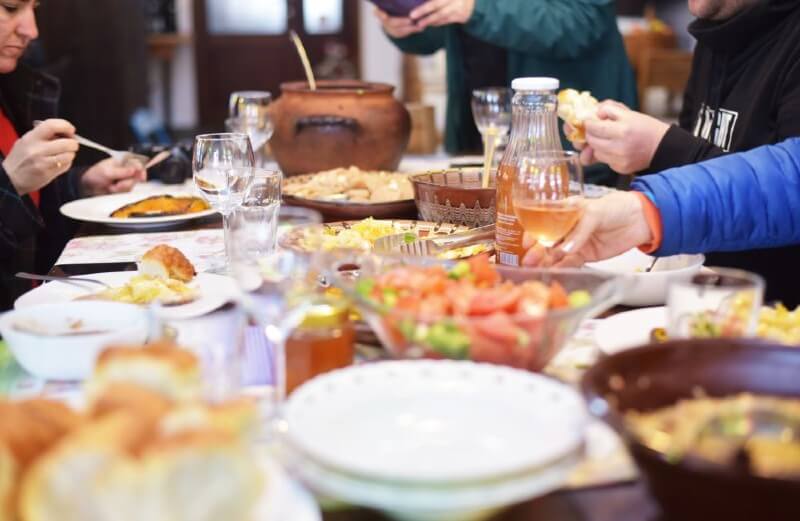
Gergana Kabaivanova’s name is well known among small farmers and food producers around Bulgaria. For more than 15 years, she has worked to promote the consumption of sustainably grown local food and ensure better conditions for its producers. Recently, she launched #PendaraInTheVillage, a project to connect busy city dwellers with rural life and farming traditions.
Gergana’s interest in healthy eating and living started with motherhood nearly two decades ago, a turning point that propelled the founder of the LocalFood.bg/Pendara Foundation to a leadership position in the local food and rural tourism movement in Bulgaria. The first food coops and farmers markets in the country emerged thanks to the efforts of Gergana and her associates, while their resounding growth and success owes much to the work of LocalFood.bg/Pendara. For the past four years, through Pendara Academy, Gergana and her colleagues have helped entrepreneurs across Bulgaria launch small food and beverage startups and develop their production sustainably.
Gergana believes that stimulating food production in villages and offering locally prepared food could be part of the solution to rural depopulation. The Bulgarian state’s participation in this process is also key, according to Gergana. Specific measures include legislative changes regulating food production in small quantities and efforts to encourage rural tourism. Training for farmers and hosts is no less important, with a focus on creating visitor experiences. “Much more needs to be done at the level of experiences,” Gergana says.
LocalFood.bg/Pendara is a long-term partner of the America for Bulgaria Foundation and part of the selection panel in ABF’s Developing Agritourism in Northern Bulgaria request for proposals. The RFP’s goal was to identify tourism initiatives offering delicious, locally grown food and authentic experiences to visitors.
We spoke to Gergana about the farmers market movement, Bulgaria’s rural tourism potential, and her takeaways from the agritourism RFP.
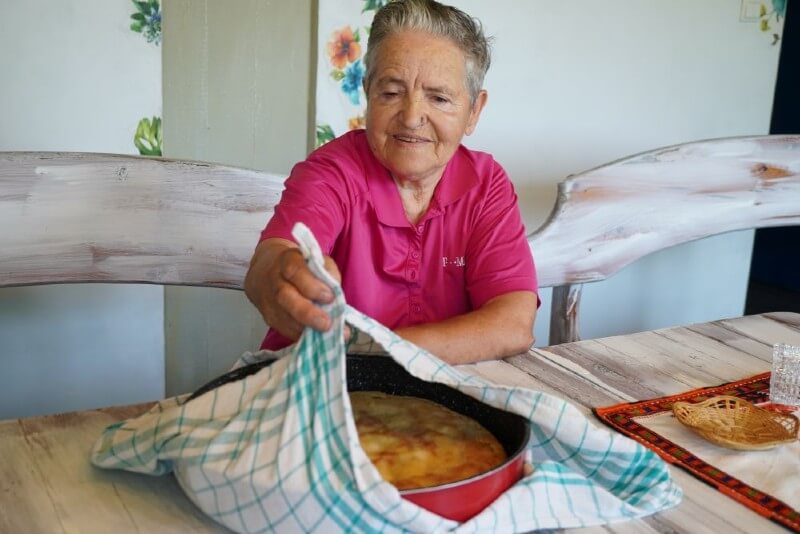
America for Bulgaria Foundation (ABF): Let’s get down to basics: What is rural or agritourism?
Gergana Kabaivanova (G.K.): Rural tourism is an alternative to mass tourism, where the central thing is not solely the accommodation of guests, but the experience that tourists can get through a combination of food and nature, local life and culture, and personal connection with the hosts. The taste of food is most authentic when you are in the countryside, when you are surrounded by local people dressed in their idiosyncratic ways, when you can experience the scent of farm animals around, of earth, of crops…
ABF: Until very recently, there was a noticeable outflow from Bulgarian villages, and now we are seeing the opposite — a growing interest in rural life. What changed?
G.K.: What triggered this interest in rural tourism was the Covid-19 situation in Bulgaria, which focused more attention on domestic tourism. Instead of vacationing in Greece or Turkey, people turned to opportunities in Bulgaria. Before Covid-19, rural tourism seemed to be about seeking countryside accommodation, and visitor experience offerings were far less important. Over the past two summers, however, rural guesthouse owners had to start thinking about offering experiences to justify visitors’ trust. This sparked strong interest in developing rural tourism in Bulgaria.
ABF: You and your colleagues travel and meet with producers and hosts all around the country. How would you rate Bulgaria’s rural tourism potential?
G.K.: We have good enough conditions and potential in terms of nature, culture, culinary traditions — in terms of what Bulgarian villages can offer. The big challenge is that people in rural areas do not take sufficient pride in having these things, and they certainly do not realize that their heritage has a lot of potential for tourism development. They take it for granted. Local pride still needs developing before it can be turned into something that can improve their livelihoods and the local economy.
Another obstacle is that, for a large number of country dwellers, words like business and marketing have negative connotations, something they want to protect themselves from. Even if conditions for working in rural tourism do improve, and it becomes easier for people to offer home-grown food, this underdeveloped business culture and lack of understanding of entrepreneurship will prevent them from being successful. Training will go a long way toward developing that understanding.
There are regional differences in rural tourism, of course. The Rhodope Mountains as a whole have much more developed offerings in rural tourism than North Bulgaria does; this is why the America for Bulgaria Foundation’s efforts with the agritourism RFP were focused on the north. In the Rhodopes, there are clusters featuring a number of guesthouses, places to eat, and various attractions, and the services they offer are actually focused on food and rural life: visitors can wear traditional clothing, take a stroll through the village, have their picture taken. Local community centers put on music programs, and farmers in the area offer their products in restaurants and directly to visitors. These are experiences that cannot be recreated by mass tourism. Visitors can find authenticity only in villages, in small communities.
Villages attract smaller tourist flows, with groups usually numbering four to six people and rarely up to ten. There are no crowds; the noise of big resorts is absent. Rural tourism is the way to go because it allows for social distancing.
Villages also offer opportunities for cultural and historical tourism, so rural getaways are for people interested in improving themselves and learning something new.
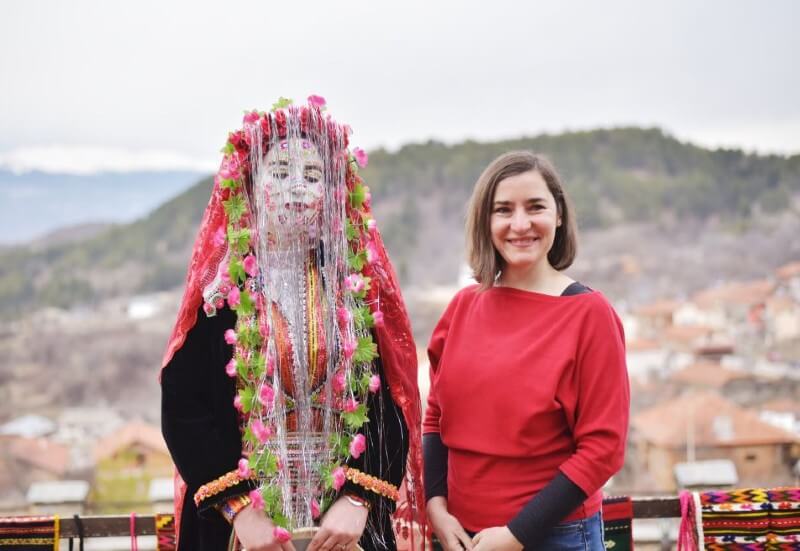
ABF: You said that “much more needs to be done at the level of experiences.” Can you please elaborate?
G.K.: Of the more than 3,600 rural guesthouses, only 200–300 offer food and interaction with the hosts on site. Many hosts open their properties to visitors, but there is nothing personal in the services they offer. Some hosts just leave the key to the property somewhere for guests to pick up and never show up even to say hello.
Businesses in rural tourism are usually family owned, and their staff consists almost entirely of family members; outsiders are rarely hired. Many business owners were surprised by the public’s strong interest in rural tourism in 2020 and gladly accepted the large influx of people and the opportunity to earn more money. That said, they did not have enough time to improve the quality of their services.
There are also successful examples, and their success stems from the fact that the hosts are constantly there; they live in the house. In most cases, there is a garden where they grow their own vegetables, and the food is prepared at home. There is rarely a restaurant or tavern that caters to large groups or offers mainstream food; instead, food is served in small dining areas, to small groups, and the approach is quite personal. Hosts and guests share a meal and converse throughout the evening.
Guests, in turn, see for themselves that they are consuming clean, high-quality food either by visiting the fields where it is grown or by having producers talk about their farming methods. This is what we encourage farmers to do at farmers markets, but there, they can only attest to the quality of their produce through dialogue, through verbal presentation. A visit on site allows clients to follow the food from soil to plate.
ABF: Is a more personal approach a common feature of the approved projects in the agritourism RFP? Please share your impressions as a jury member.
G.K.: In all submissions I saw a genuine desire to offer services in rural tourism, but a large number of candidates have focused on improving their facilities, on creating a cozier, more luxurious environment, and the idea that they need to be offering visitor experiences eludes them somewhat. Their thinking is that if they make their guesthouse more comfortable, that will attract more tourists, and at the same time they offer less marketing, fewer events and experiences that a family from Sofia or Plovdiv would travel hundreds of miles to go and see.
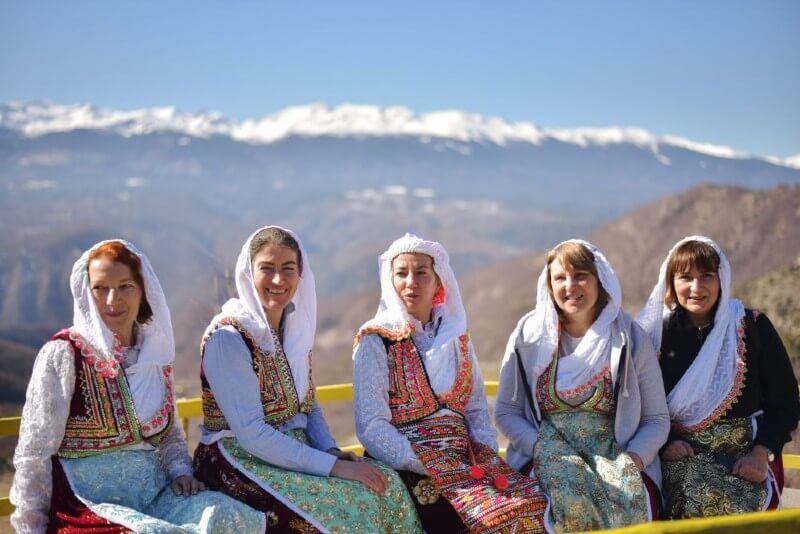
It is the region, not a specific guesthouse, that attracts individuals looking for rural getaways. In addition to experiencing the guesthouse, visitors will want to eat somewhere. They will want to meet the locals. Visitors won’t come for that one good guesthouse and that one good host. The community needs to work together to offer a mix of services: one person in the village may provide accommodation, another will offer food, a third one will transport visitors to local landmarks, a fourth one can be a guide and introduce guests to the village’s history. This is a successful model for rural tourism.
The agritourism RFP jury looked specifically for that community element. A good example is Tsarev Brod Winery, near Shumen, whose work to engage all wineries in their area, even before the RFP, is impressive. They have a network and a website that brings everyone together, and in addition to offering services at their own winery, they include other wineries in their tours and events. They also teach smaller wineries how to cater to visitors successfully.
Through the initiative of Karyana Goat Farm, a farm coop was founded near Montana uniting local beekeepers, vegetable growers, and dairy farmers. Karyana’s most recent project includes a farmers market and services supplied by several farms in the area.
The Tutrakan Community Center’s tourism initiative is yet another good example bringing together local guesthouses, Tutrakan residents, and tourism service providers for the development of the region as a tourist destination.
All twenty approved projects are really interesting. A lot of work has gone into the proposals, and they are all based on well-developed concepts.
ABF: No one in Bulgaria has done more to promote local production and the consumption of clean, locally grown food than you, most recently by connecting food growers and end users through village tours. How did you become a spokesperson for villages?
G.K.: My interest in local food and farmers markets began with the food coop movement, in which people from the city, mostly young people with small children, sought direct contact with growers of clean food from the countryside. Initially, we did this informally. We launched the first farmers markets so we would have an official, legal channel for trading in such products. The farmers market model took five to six years to establish. Everyone in Bulgaria now knows what a farmers market is, but in the beginning, puzzled onlookers would watch us setting up our vending stalls at malls and other public spaces and ask, “What on earth are you doing?”

Before we started doing village tours, we encouraged partner food growers to talk to customers at the farmers markets, to tell them about their practices, and to show them photos and leaflets by way of establishing trust in their offerings. We also had farms host events for market clients, and these have always been quite interesting and satisfying for visitors.
As a result of the pandemic, rural tourism became yet another opportunity to showcase the benefits of locally grown food — through farm visits and events and through culinary festivals involving several farms. We saw that there is a lot of untapped potential there, which is why we pivoted our work and focused our efforts on rural visits. This would encourage local food consumption and strengthen the connection between growers and buyers.
These developments could have far-reaching social effects as well. By fostering rural production and a local food culture, rural tourism could help reverse depopulation in villages.
ABF: #PendaraInTheVillage adventures are truly immersive experiences. Please tell us more about the rural journeys you organize and why they are so much more than culinary tours.
G.K.: We want city people to experience at least a day in the life of village dwellers — by having them enter a country house, sit at a country table, listen to locals’ stories, by having hosts and guests cook together, sing together… We experience the place in the most natural way possible, by immersing ourselves in the natural, everyday environment of people in the villages. We as organizers hardly ever interfere in or moderate the experiences; we encourage guests to communicate directly with our hosts.
ABF: Where is the next #PendaraInTheVillage adventure?
G.K.: In April, we are visiting the villages along the upper course of the Arda River. We will take part in several culinary workshops, where we will learn how to prepare a traditional klin [a pastry dish with a filling of cheese, eggs, and rice, ed.]. Klins are becoming regular menu items at Bulgarian restaurants, but we will be making the pastry in the authentic way — with meat or with seasonal fruits and vegetables. In this case, we will make spring klins using spinach, fresh cabbage, and nettles. The workshops will take place at a guesthouse in Gorna Arda, whose mayor will meet with us to tell us about the region’s history. We will put on traditional wear and have our photos taken at the backdrop of great panoramic views.
There will be a special guest appearance by 2021 MasterChef Bulgaria winner Maria Jekova, who lives in the region and who will prepare a klin blending modern techniques and tradition.
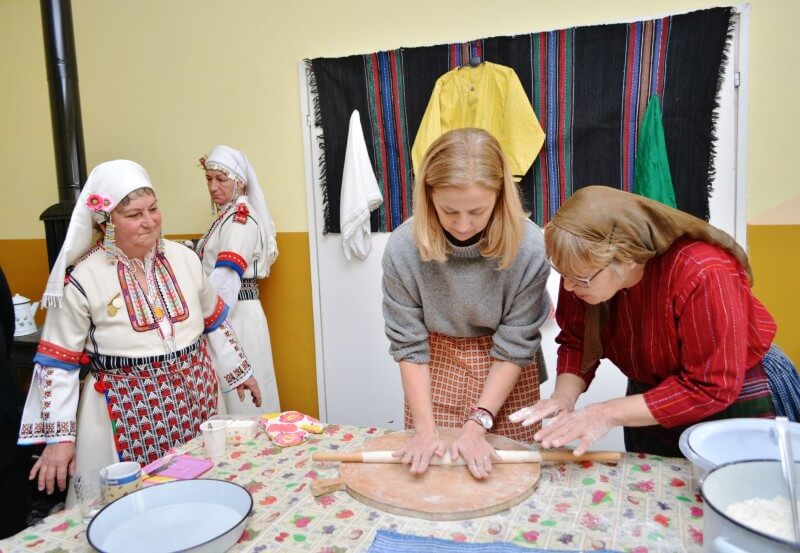
ABF: How would you like to see rural tourism in Bulgaria develop in five years’ time?
G.K.: Rural tourism’s value lies in its authenticity. Every intervention and innovation in the village must be introduced with a view to preserving that authenticity, including the food, the landscape, and local people’s culture. There must be minimal impact on and changes to an area’s character. It is the responsibility of both tourism service providers and local authorities to create rules that ensure this authenticity is not threatened by tourism. Guest parking and accommodation should be organized in such a way that it does not interfere with normal activities in the village.
Offering local products also requires some degree of cooperation between producers — the development of a community model rather than of individual businesses. I would like to see people in the field focus not only on the advancement of their own facilities and products, but also on community impact and development. For example, they could share their experience and knowledge with others in the field. This was key to the success of Tuscany and other regions in Europe. The staff there is drawn entirely from the local community, the food comes from small local producers, and everything offered on site is a product of the local community. This is something guests appreciate and is a prerequisite for offering a good price. Tourists are tired of seeing magnets and badges made in China and would pay more for something made by local hands using local materials. I want to see entrepreneurs turning to their local communities as much as possible — training them, preparing them for what lies ahead, making them a part of their success.
